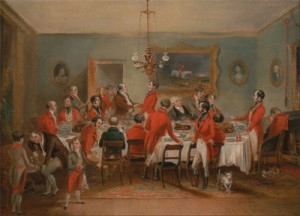Listen to this shocking news:
The school board in Orange County, Florida
Has approved a Satanist’s Coloring Book
For children!.
Instead of
opposing the Satanists, the Public School Board Of Education CAVED in to
the Satanists and, without a legal battle, has:
- Given permission for the Satanic Temple to distribute literature to their school children
- And this includes a children’s Satanist “coloring book.”
We must not turn away and surrender our school children to the Satanists. Just listen to this:
Page 1 of the coloring book
has two almost identical pictures of a teacher and children in a
classroom. A Satanist little girl is called Annabel. The caption reads:
“Annabel is spreading knowledge and helping to dispel fear and ignorance by demonstrating her Satanic ritual for her class…”
Page 3 of the coloring book shows
a picture of a cozy study with fireplace and book shelves. Annabel is
sitting in a chair with a smile on her face reading a book with a
pentagram on its cover.
A large
family picture hanging over the fireplace shows her Satanist mother with
two large horns protruding from her head, and the bald-headed father
Satanist sitting in an equally horned chair with an Anton LaVey Satanic
‘goat’tee, and Annabel is holding what seems to be a chalice or wine
glass.
The caption reads: “Color Annabel’s study filled with Satanic literature and philosophy.”
Page 8 of the coloring book has a “secret code” for the children to de-code, with the caption:
“Annabel
sent Damian a note in class, but it’s SECRET! Help Damian break the
secret code to find out what Annabel wants to say to him.”
The answer is even more shocking: Audi Preces Meas: [Hear my prayer:] Satana Blessed Be.
But here is even more that the Satanists say. (With the permission of the Orange County School Board!)
Page 5 of the coloring book says:
“Whopper
is big and sometimes scary because he has trouble saying what’s on his
mind. Help Damian and Annabel use their patience and open-mindedness to
decipher what he wants to say.”
And on and on and on. Is this educating the children, or introducing them to the Satanists? Exposing them to paganism?
Will
you send the following protest, and express your indignation that a
Satanist coloring book has been approved by the Orange County schools:
To: William Sublette; Chairman, OCPS Board
Kathleen Gordon; Vice-Chair, OCPS Board
Your Petition Message will state:
It is
with incredible dismay and disappointment that I have read press reports
announcing that your school board is allowing or plans to allow,
without any legal resistance whatsoever, the Satanic Temple to
distribute its “literature” to the school children in Orange County
Public Schools.
Shame! To setting such an evil precedent you should be heroically opposed!
Satan
is the vile and eternal enemy of humanity’s welfare, both temporal and
spiritual; and has no place in a civilized society, much less in its
schools exerting an insidious corruption of society in its germ.
All educators are charged, in loco parentis, to protect their students.
I urge you, with all my heart, to at least try to save the children from this horror!
All you have to do to send this protest is just:
School children are too young and too innocent to be exposed to
the evils of Satanism. I urge you to help us protest this.
It’s a terrible precedent. It must be stopped! Before it spreads!
Your protest is urgently needed.
And may Our Lady reward you and protect our nation’s school children from the wiles, deceits, wickedness, and snares of the Devil and his Satanist fellow travelers. Thank you!
 Written by Evan Olwell
Written by Evan Olwell
 St.
Dominic insistently advised that she adopt the recitation of the
Rosary, but she would not hear it. Moreover, she left the confessional
horrified at the methods of this new spiritual director who wanted to
impose on her a devotion for which she had no taste.
St.
Dominic insistently advised that she adopt the recitation of the
Rosary, but she would not hear it. Moreover, she left the confessional
horrified at the methods of this new spiritual director who wanted to
impose on her a devotion for which she had no taste.

